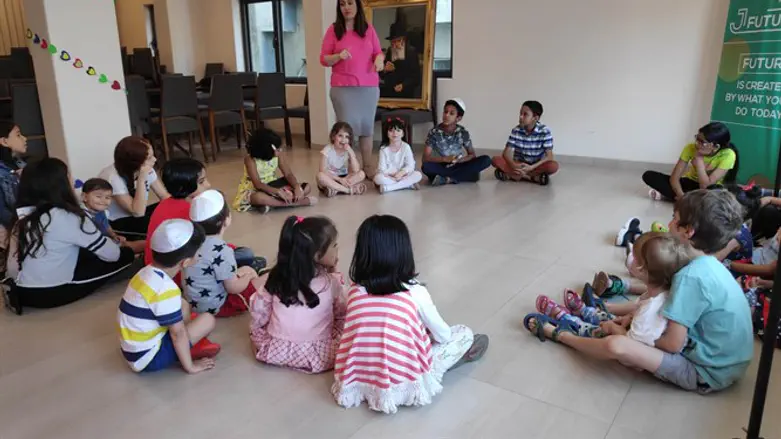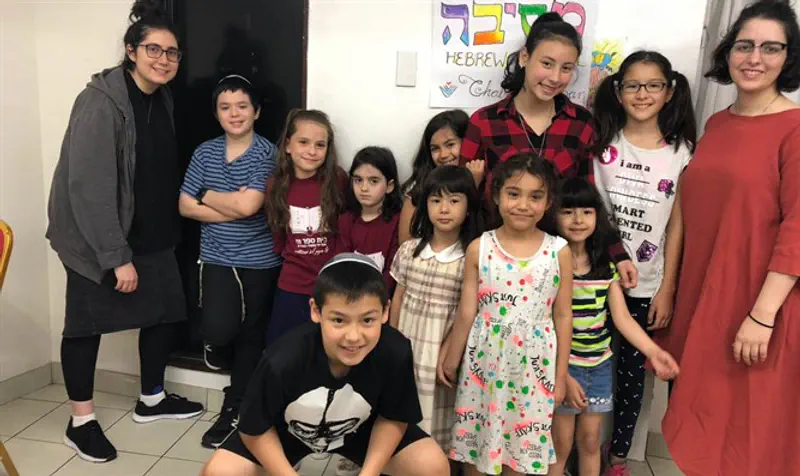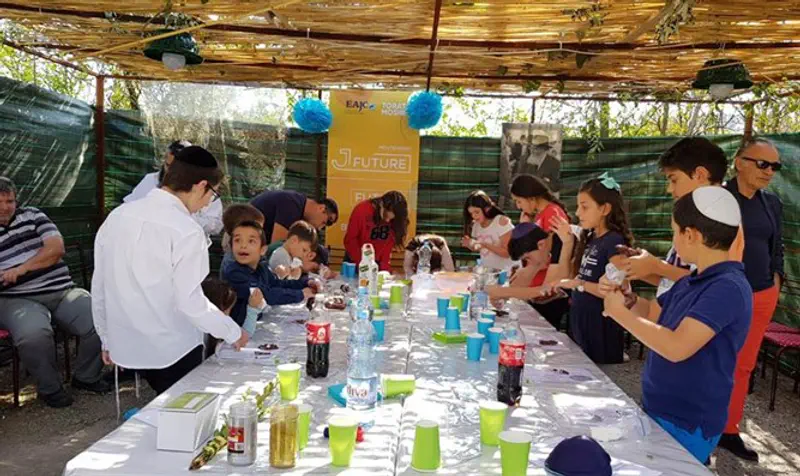
This week, a new Jewish Sunday school has been opened in Bulgarian capital Sofia. It is already 17th school of those established as a part of the new education project called JFUTURE.
JFUTURE is the Jewish Sunday school network intended, first of all, for families that did not take an active part in the community life. With over 400 participants, JFUTURE aims to double the number of students by the end of 2019.
The project has been launched with the support of the Euro-Asian Jewish Congress, and it boasts a wide geography, spanning countries like Montenegro, Russia, Ukraine, Moldova, Serbia, Bulgaria, Japan, India, Kazakhstan, and others.
JFUTURE is a flagship project of the Euro-Asian Jewish Congress (EAJC), whose president, Mikhael Mirilashvili, attaches great importance to the Jewish education.
"We consider the Sunday schools as a basis for education of a new generation of Jewish children," Mirilashvili said. "This format allows to familiarize with the Jewish heritage even those families that, for various reasons, do not participate in their communities' activities. This new generation is our people's future, and it is our top priority to acquaint them with the history and tradition of the Jewish people."
"At the same time, while being a part of JFUTURE, children gain knowledge in various realms of science and arts, which would enable them to become successful members of the modern society and, at the same time, to preserve their Jewish identity."
The new project has been supported by Berel Lazar, the Chief Rabbi of Russia, who said, "We are glad to take an active part in this new education initiative intended to strengthen ties of hundreds of Jewish children with their people through the learning of our history and tradition. It is gratifying to see that such a project appeared just now, when Jews in various countries are facing an acute problem of preserving their national identity. Familiarization with our heritage from an early age will help these children keep their Jewishness alive."
Rabbi Israel Kozlovsky, the Chabad emissary in Mumbai, spoke about the influence JFUTURE exerts on the local community’s life.
"Inclusion of Mumbai in JFUTURE project allowed us to involve new families in the activities of the community that nowadays numbers about 2000 people," he said. "We are witnessing our students pass the knowledge they gained on to their parents, thus acquainting them with the Jewish tradition and strengthening ties between generations. The Bene Israel community in Mumbai has an ancient history and remained isolated from the rest of the Jewry for many centuries. Our Jewish Sunday school helps support cooperation of the community with Jews all over the world."
The project participants are grouped according to their age: J-fun—5-6 years old, J-lab—7-9 years old, J-profi—10-12 years old, and parents. Each age group numbers from 6 to 15 members. The project programs are developed by leading specialists and are based on best practices.
Along with the "Jewish component," participants gain knowledge in applied realms. The STEAM approach underlies the educational program. It stands for Science, Technologies, Engineering, Art, and Math. Lessons are built with due regard to special aspects of each age group.

